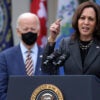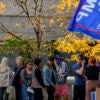In some respects, the recent attempted Times Square car bombing and the arrest of Faisal Shahzad, a naturalized citizen, point to a significant success in America’s Global War on Terror.
In the aftermath of 9/11, our government quickly reformed the Intelligence Community and established the Department of Homeland Security, moves which have been successful in making it more difficult for foreign terrorists to enter the country and carry out attacks. U.S. military action has weakened al-Qaeda Central.
But this has also created a new challenge: the battlefront has shifted from overseas to our homeland.
Al-Qaeda has determined that it can achieve its jihadist agenda more easily by recruiting operatives from within the U.S. (citizens, in some cases)—those who have no longstanding previous ties to Islamic jihadism or international terror organizations. Thus, they are often below the radar of intelligence and law enforcement officials.
Consider just a few of the more recent cases. Shahzad is a U.S. citizen. Najibullah Zazi, who has pled guilty to conspiring to blow up the NYC subway system, was a legal permanent resident. U.S. Army Major Nidal Malik Hasan, the Fort Hood shooter, was a Virginia-born citizen.
Unfortunately, this adaptation by al-Qaeda means that we must adapt as well.
The fact that terrorists are in the U.S. legally is a game-changer that makes it more difficult for law enforcement and intelligence agencies to identify, monitor and preempt future attacks. It is more difficult to get advance notice of other pending attacks. It is more difficult to determine where those attacks might originate.
But there are actions that the Obama Administration can take to ease this difficulty.
First, we should treat terror suspects as enemy combatants and not as criminal defendants. Sadly, the Obama Administration insists on defaulting to the civilian criminal court system as quickly as possible.
In the meantime, we can—and should—change the way we issue Miranda warnings to ensure we treat terrorists as we should treat terrorists and not as we would bank robbers. After Shahzad was arrested trying to flee the country, I said that despite the fact that he was a U.S. citizen, law enforcement and intelligence officers should gather as much intelligence from him as possible. I was roundly criticized by the liberal left.
Within days, we learned that law enforcement officials were, indeed, taking advantage of the public safety, or “ticking time bomb,” exception to the Miranda requirement and interrogating him before informing him of his “right to remain silent.”
Then we learned, via Attorney General Eric Holder, that the Obama Administration is considering “modifying the rules that interrogators have” when terror suspects are brought into custody here on U.S. soil. I welcome the Attorney General’s realization that we have to adapt to al-Qaeda’s new type of terrorist.
Additionally, the next time that law enforcement officials capture a terrorist in our homeland, Holder’s Department of Justice should consult the Director of National Intelligence and others in the Intelligence Community before giving any Miranda warning. This coordination, which has apparently not been taking place, would provide interrogators with the information they need to ask the right questions and save lives.
By now focusing on recruiting Americans and legal U.S. residents, al-Qaeda has shifted in the methods it uses in its effort to destroy our nation. Now, the Obama Administration must make a critical shift, as well, in the methods it uses to ensure that our nation defeats our enemy.
King is the Ranking Member of the House Committee on Homeland Security, member of the House Permanent Select Committee on Intelligence, and Chair of the National Security Solutions Group.
The views expressed by guest bloggers on the Foundry do not necessarily reflect the views of the Heritage Foundation.




























